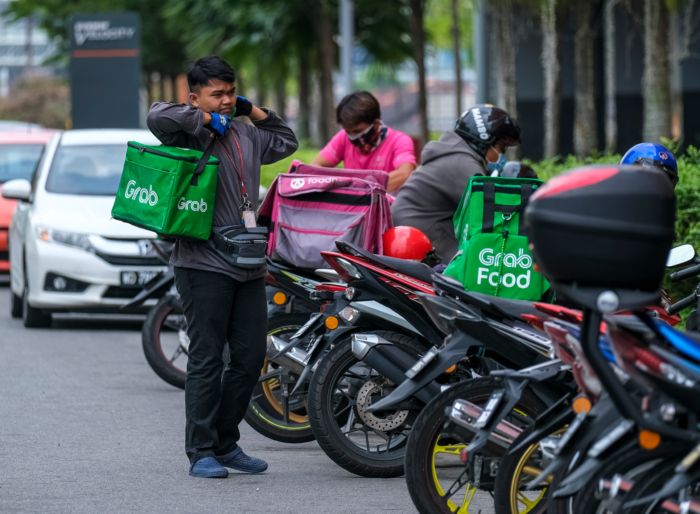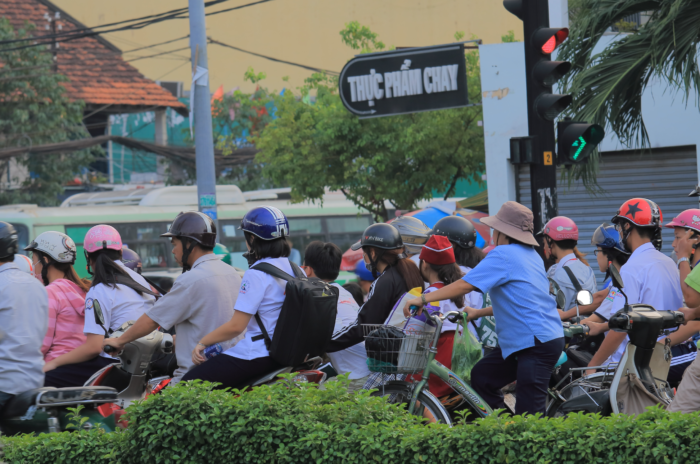Is the UK ready to embrace the four-day workweek?

After a successful trial, 100 companies in the UK have decided to adopt the four-day workweek on a permanent basis.
Digital platform provides growth opportunities for Indonesia’s MSMEs

The government is aiming to bring at least 30 million MSMEs onboard the digital ecosystem by 2024 and to nurture more digital talents.
Most Australians want a four-day workweek

Employees in the country are convinced about the benefits of a shortened workweek and employers are ready to oblige.
Earning power peaks at age 42 in South Korea

On average, employees in South Korea start to earn more than they spend at age 27, before this turns into a deficit at age 61.
Tight jobs market in Japan keeps upward pressure on wages

The government is also continuing to introduce measures to encourage employers to increase wages for their employees.
Jobs creation should be prioritised over wage hikes in the Philippines

The Employers’ Confederation of the Philippines has called on the government to provide more inclusive measures to manage economic problems.
Uber Eats delivery staff in Tokyo granted worker status

Uber Eats is challenging the decision, maintaining that delivery staff are not part of the labour force but are customers using the platform’s service.
Singapore urges employees to upskill in industries facing disruption

For mid-career employees, learning new skills has become increasingly important, and upskilling shows employers their willingness to learn.
Remote employees in Japan less likely to be depressed

In the government’s 2022 whitepaper, it was concluded that remote employees had more sleep hours, which reduces depression and anxiety.
Taiwan doles out NT$1.35 billion to cover workers’ wage hikes

The wage subsidies are available to local businesses experiencing revenue decline of 10% or more due to the pandemic.
Employees in Australia failing to achieve work-life balance

Employees in Australia are clocking six weeks of unpaid overtime hours each year and are finding it hard to disconnect from work.
How female employees can gain the recognition they deserve

The World Economic Forum provides some tips for women to pitch ideas to management and claim credit for what they do in the workplace.
Emotional adaptability can help boost creativity at work

By developing creative employees, organisations can help boost business productivity in more conventional roles like accounting and data analytics.
Organisations should take a people-first approach to attract talent

Ways to foster attractive workplaces include leveraging flexible work options to provide employees with more autonomy.
More women in South Korea choosing to leave the workforce

Childcare has been cited as the main reason why married women in the country choose to leave the workforce.
Companies in India continue to define flexible work strategies

While some companies want a full return to the office, others are offering hybrid options as part of a flexible workplace culture.
Indonesia sets 10% ceiling on wage hike for 2023

Adjustments to the minimum wage are determined by combining inflation, economic growth, and the productivity at work factor of respective provinces.
Singapore leads work flexibility agenda in APAC

In contrast, over 20% of leaders in the Philippines, India, Sri Lanka and Malaysia expect employees to be working in the office all the time.
Organisations face hiring challenges as employee’s market remains

Fears of a potential recession may temporarily curb hiring in the short term, but long-term effects are likely to skew market power toward jobseekers.
Labour union calls for stronger support for Singapore’s gig workers

A dedicated advisory committee has been reviewing protections for these workers under Singapore’s pension scheme.
Gig worker protection to be strengthened in Malaysia

New legislation will see workers in the food delivery service provided with a social security scheme and operators placed under government regulation.
Improve employee productivity and increase skills, firms in Singapore told

As employers consider wage hikes, they should also develop employees’ skills and redeploy them, said Singapore’s Senior Minister of State for Manpower.
Gig workers in Singapore divided over contribution to savings scheme

The discourse comes as a special committee continues to study recommendations and ways to strengthen protections for gig workers in Singapore.
Most Australians support multi-employer bargaining proposal

Multi-employer bargaining, as outlined in a new bill, allows employees from different workplaces to collectively negotiate pay rises.
SMEs in India are prioritising ESG for business growth

More SMEs in India are implementing ESG practices, but they face challenges such as uncertainty over how to measure the success of ESG projects.
Employers in Singapore called on to hike wages amid inflation

Wage guidelines for lower-wage workers have been set between 5.5% and 7.5% with the goal of narrowing the pay gap.
Vietnam set to hike wages starting July 2023

Besides raising the minimum wage in July, pensions and social insurance benefits for retirees will also increase by 12.5% in January 2023.
New Zealand places 20,000 people into jobs through national programme

As the country embarks on its economic recovery, the Flexi-Wage programme has helped address skills gaps and meet workforce shortages.
Job security outweighs salary for employees in Singapore

Employees in Singapore prioritise stability and job security over salary, while good leadership is key to retain talent and maintaining employee wellbeing.
Twitter reverses work-from-anywhere arrangement

Having previously advocated permanent remote work, Twitter is now requiring employees to work a minimum of 40 hours per week in the office.
